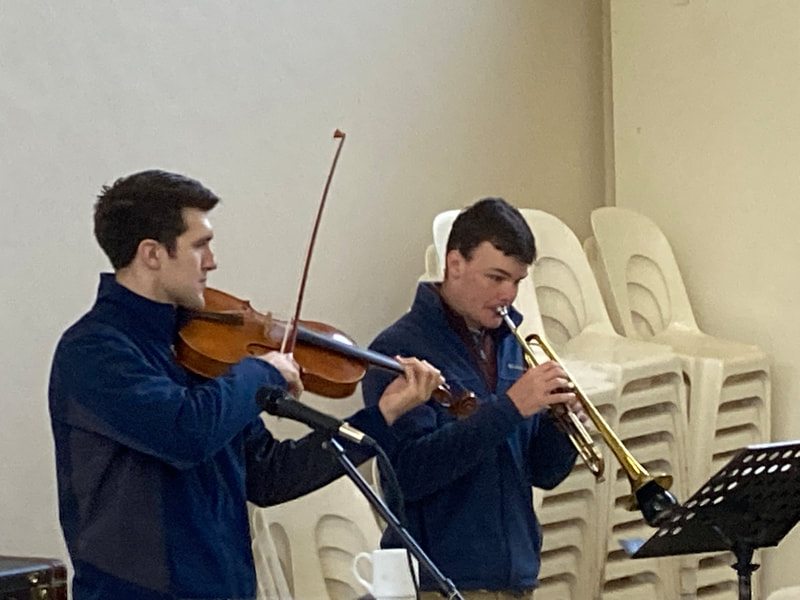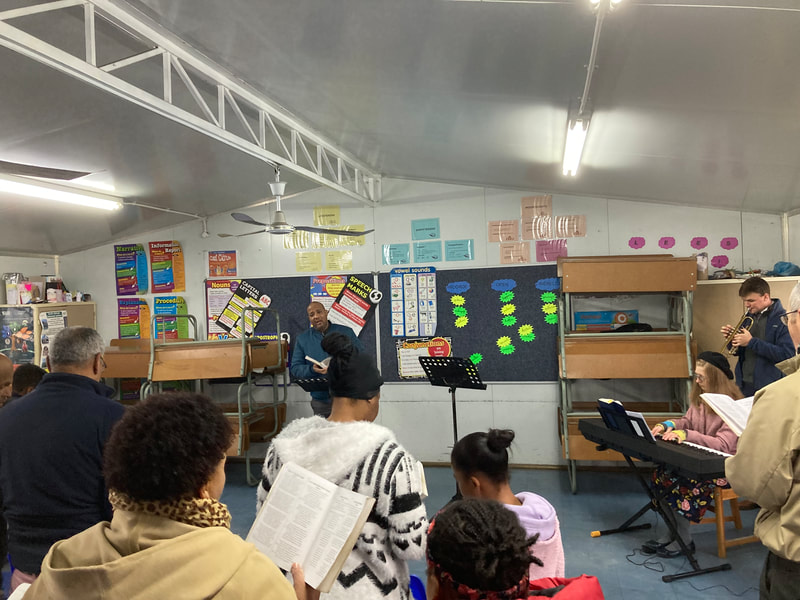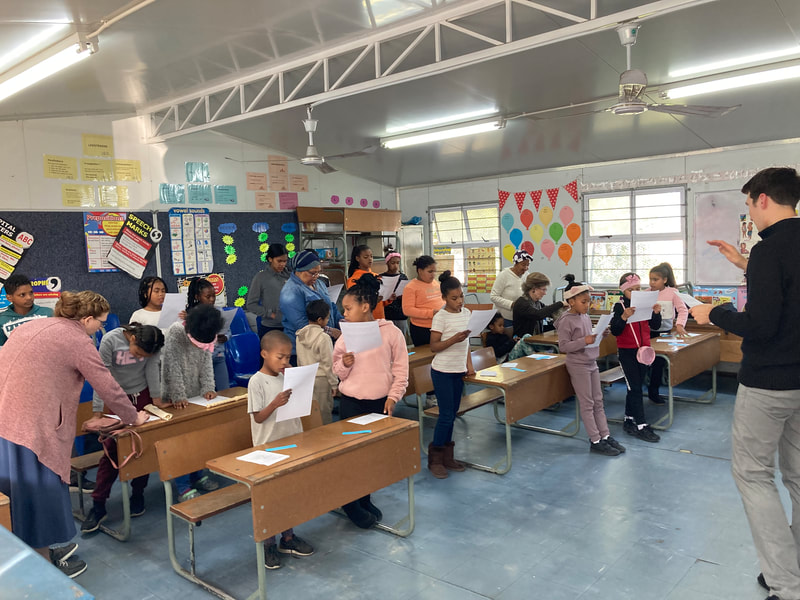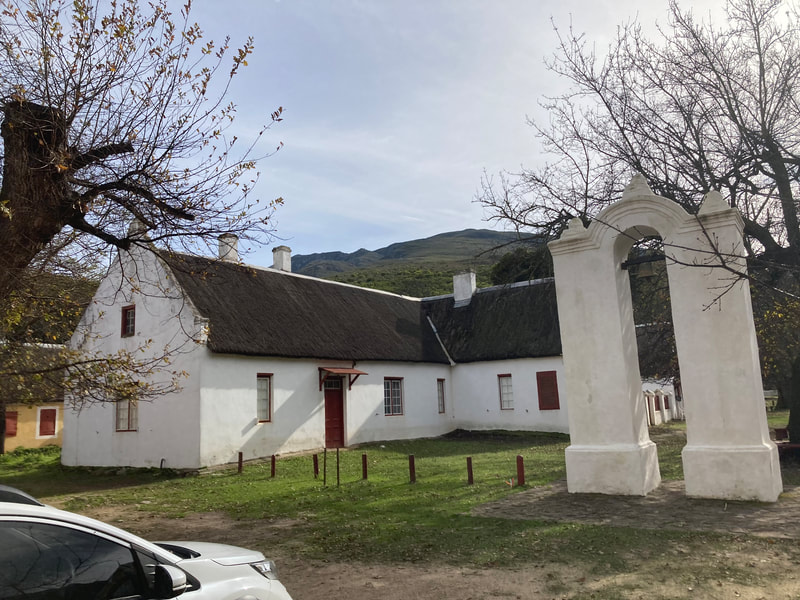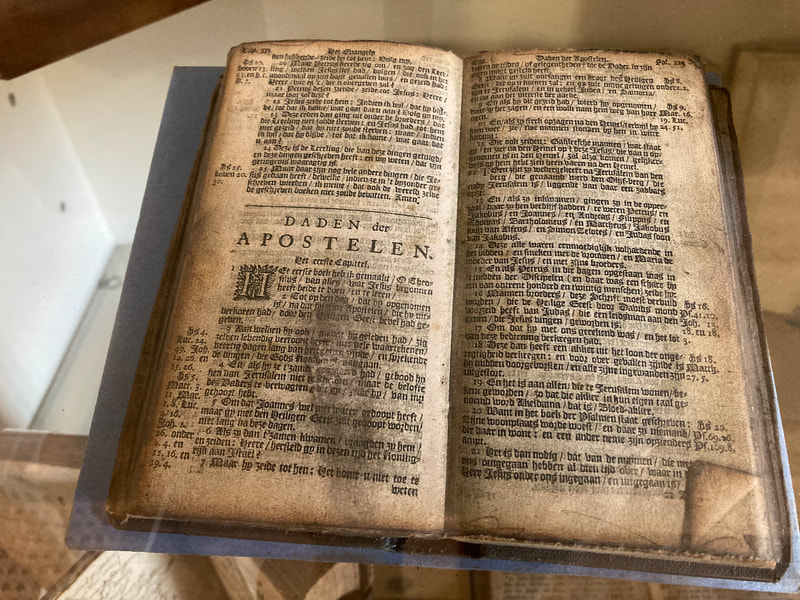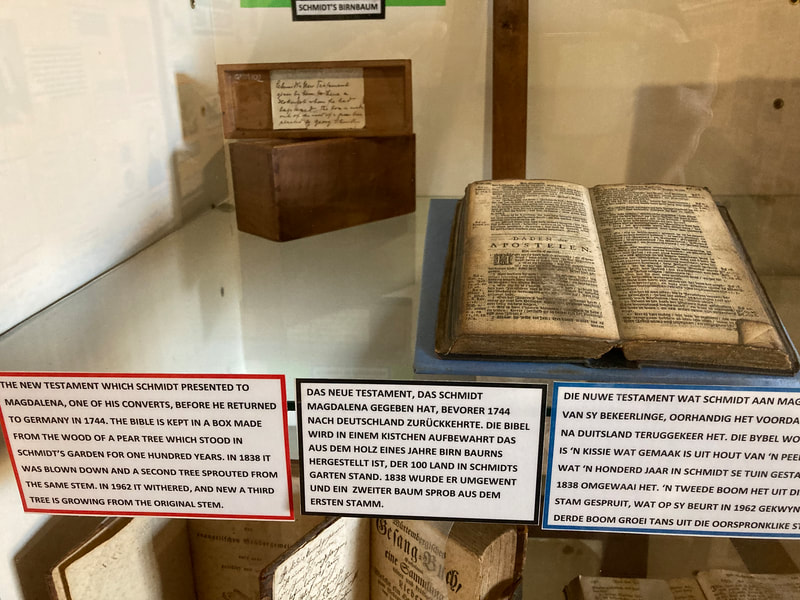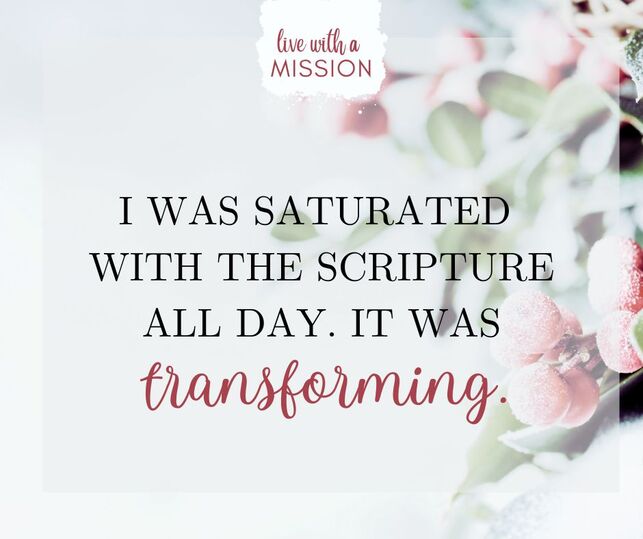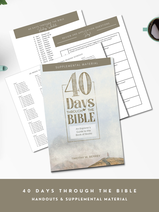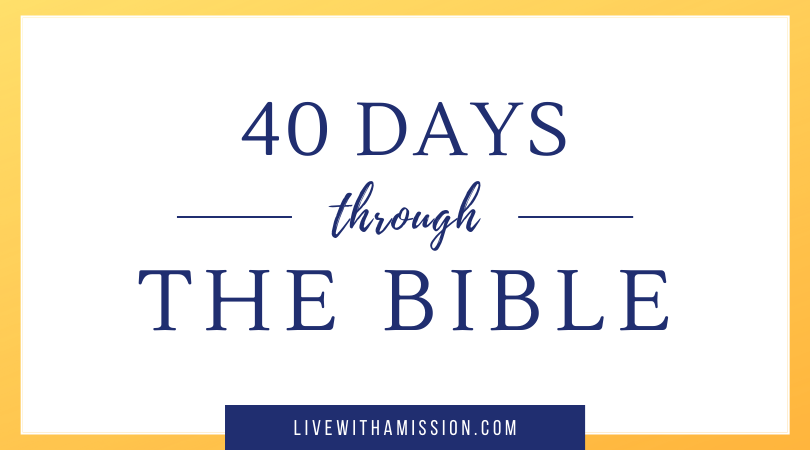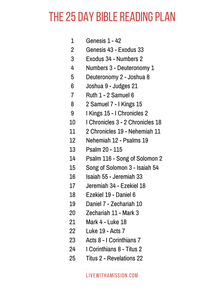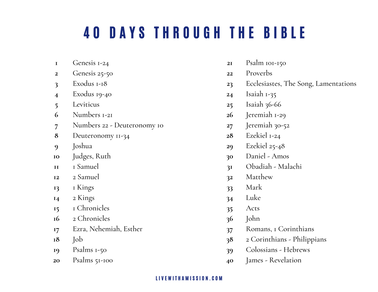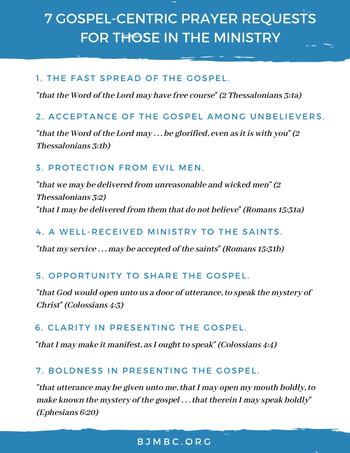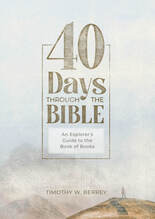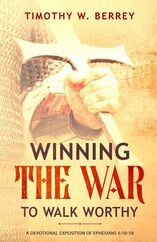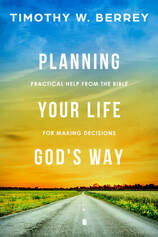|
How shall they hear without a preacher? How shall they hear without a preacher? These words reverberated in my heart and mind as I recently visited Cape Town, South Africa, and the work of GFA missionary church planter Tony Payne. He is planting a church in Delft, a township with the highest murder rate in all of the Cape Town area. The township stretches for blocks, with tightly packed shacks housing who knows how many thousands of inhabitants. And this is just one of countless areas across our globe where the gospel must be proclaimed, and where the good news of righteousness available by faith alone is so needed. Has God burdened you to be one of God’s preachers who has the privilege of sharing this good news with some who may otherwise never hear? It was my privilege to speak at an overnight multi-church men’s retreat while I was there. Our theme was “Til the Whole World Knows.” My son James went with me to assist with music for the retreat. He was joined by Joe Steinbart, who flew over with us. Joe has a master’s degree in viola and provided solid musical leadership at the retreat and in various church services. His sister, Melody, is currently doing an internship with the Paynes, working to build up their church’s young musicians. Would you pray that God would raise up a keyboardist who could regularly accompany the services at the Paynes’ church plant? Currently, they have no one to provide music. Tony Payne also took us to see Genadendal, the oldest mission station in South Africa. It was founded in 1737 by a Moravian from Germany named George Schmidt. Although only able to stay at Genadendal for seven years, he left a Bible that was still being read when three Moravian missionaries returned 48 years later. The Word of God is not bound (2 Tim. 2:10). In the video below, you can hear the story of one woman in Genadendal who waited 48 years for a missionary. As you watch these videos, would you ask God what part He wants you to play in the cause of worldwide missions? As the GFA slogan puts it, “Where will you go?” Don’t think that just because you are not a gifted preacher that God cannot use you in missions. I know missionaries who teach trade skills, repair machinery in primitive, inaccessible locations, help with administrative details and ministry projects, teach children’s clubs, and provide musical training. If you will lay your unique skill set at the feet of your Lord, there is no telling how He might use you. Genadendal and Georg Schmidt's BibleGFA PosterBelow is a link to one of GFA's new missions posters. You are welcome to print this poster and display it in a place where it will catch your eye and stir your burden for souls. I'm so thankful that Vera Jones shared this testimony with me. If you are wondering how you can soak up more of the Bible, this will be an encouragement and a help to you! When our pastor (my husband Frank Jones) challenged our church to consider reading the Bible in 40 days, I thought, “Sure, why not? This is a win-win!” I always read the Bible through each year. However, to read it in such large volumes at such a quick pace seemed daunting. Excuses flooded my mind, including my slow reading skills. But as I thought about it, I realized that even if it took me longer than 40 days, and I did not meet the challenge goal, I was still reading my Bible. Pastor sweetened the challenge when he promised each participant the book by Dr. Timothy Berrey, 40 Days Through the Bible. I signed up, as did eight others in our church. The first day of the new year was the start date and we began this journey. Pastor set up a text thread so we could encourage each other, post spiritual thoughts or nuggets we gleaned, share issues we were having, or get validation and help from the group. But the first week of January, I became ill. I did not have a high fever, but my sickness sent me to the couch. During this down time, when I was awake, I read. Within about 72 hours, I had returned to health. But now I was ahead of schedule. I thought being ahead was important because I did not know what might derail some of my reading in the upcoming weeks. Sundays would be difficult for me to read such large portions of Scripture because the day is so packed. Thus, being ahead would allow me to finish on schedule. Around 14 days into the reading, I found myself significantly ahead of the 40-day goal. My husband commented that it seemed like I was on pace for the 25-day challenge. When I checked the 25 Day Bible Reading Schedule in Dr. Berrey’s book, I realized I was even two days ahead of that one! I immediately switched plans and finished the reading in 20 days. How did the Lord enable me to accomplish this? 1. I identified activities I could postpone. Through the advice of two other people who have read the Bible in less than a year, I began looking at where I spend my time, and I quickly identified areas that could be set aside temporarily. Forty days is essentially 6 weeks. I knew I could catch up on those other things later. 2. I read and listened to the Bible. I had a reading Bible and an audio Bible set in different books. This made it easy to mark my place in each and kept me from getting confused. I listened via the audio Bible to the majority of the OT, most of the gospels, and a few other NT books. The other books I read in my reading Bible. Taking turns between reading and listening to someone else read provided a variety that I appreciated. Between reading and listening, I was saturated with the Scriptures all day. It was transforming. 3. I multitasked whenever I could. I listened while doing mundane duties of life like dressing, cooking, dishes, laundry, ironing, house chores, cleaning, exercising, and driving. The saturation of Scripture that was going on in my mind made these tasks more enjoyable. How did the Lord bless me through this? This was a challenge I will not forget. I thoroughly enjoyed it and learned much. I was illumined to a larger view of the Lord’s work. Patterns, repeated verses, and many of the Lord’s attributes and care were so much more evident. Reading in large volumes is like a fly-over survey of the Scriptures versus a hike through the woods. I have never read Joseph’s life and his bones returning to Canaan in the same reading section before. Reading books like Ezra, Nehemiah, and Esther in one sitting brought a more complete picture of that time in Israel’s history. Reading all of Isaiah in one day was amazing! This challenge was not a hard task and stimulated my growth in a unique way. I would encourage anyone to take this challenge. It does not have to begin with the new year. You can even complete it in 20, 35, 40, or 60 days because Blessed is he that readeth… Rev 1:3a. Contact us directly for a discounted price if you plan to purchase multiple copies of 40 Days Through the Bible for your ministry.
Our family is currently under a two-week self-quarantine in our personal effort to flatten the curve. Although we feel perfectly healthy, we recently traveled from Asia back to the States and are thus uncertain of what we picked up on the way. Even if we weren't under quarantine, however, we would still be--like most people right now--under some form of lockdown. Life under lockdown can be full of blessings, if you use it profitably. It allows you to
For this reason, we want to share the 40 Day Bible Reading Plan with you. On this page you can access the daily Bible readings, along with a link to a helpful summary of the passage with themes and things to look for while you read. The Word of God has the power to change our lives. We often complain of a lack of time to spend truly mining the Scripture, but right now many of us have time on our hands as we wait out our lockdown. Perhaps God wants you to spend this time in this way? Whatever the case, may God richly bless you and your family during this time and give you peace in the midst of this storm. God loves you. Share the message. How Much Does God Love You?1. He loved you long before you loved Him.
But God demonstrates His own love toward us, in that while we were still sinners, Christ died for us (Romans 5:8). We love Him because He first loved us (1 John 4:19). Just as He chose us in Him before the foundation of the world, that we should be holy and without blame before Him in love, having predestined us to adoption as sons by Jesus Christ to Himself, according to the good pleasure of His will (Ephesians 1:4-5). 2. He refused to just let you perish in your sins (like you deserve). For God so loved the world that He gave His only begotten Son, that whoever believes in Him should not perish but have everlasting life (John 3:16). 3. He sent His Son into the world to take on humanity so that you could have eternal life. In this the love of God was manifested toward us, that God has sent His only begotten Son into the world, that we might live through Him (1 John 4:9). 4. He poured out His wrath against your sin on His own Son. In this is love, not that we loved God, but that He loved us and sent His Son to be the propitiation for our sins (1 John 4:10). 5. Because His just wrath against sin has been completely satisfied, He now offers you mercy instead of wrath, life instead of death, eternal kindness in Christ Jesus instead of inescapable bondage to sin and to Satan—all (because of His grace) through faith alone. And you He made alive, who were dead in trespasses and sins, in which you once walked according to the course of this world, according to the prince of the power of the air, the spirit who now works in the sons of disobedience, among whom also we all once conducted ourselves in the lusts of our flesh, fulfilling the desires of the flesh and of the mind, and were by nature children of wrath, just as the others. But God, who is rich in mercy, because of His great love with which He loved us, even when we were dead in trespasses, made us alive together with Christ (by grace you have been saved), and raised us up together, and made us sit together in the heavenly places in Christ Jesus, that in the ages to come He might show the exceeding riches of His grace in His kindness toward us in Christ Jesus. For by grace you have been saved through faith, and that not of yourselves; it is the gift of God, not of works, lest anyone should boast (Ephesians 2:1-9). 6. He wants to rescue you from your current sinful lifestyle, apart from any works of your own, by the cleansing and transforming work of the Holy Spirit, freely available through Jesus Christ. For we ourselves were also once foolish, disobedient, deceived, serving various lusts and pleasures, living in malice and envy, hateful and hating one another. But when the kindness and the love of God our Savior toward man appeared, not by works of righteousness which we have done, but according to His mercy He saved us, through the washing of regeneration and renewing of the Holy Spirit, whom He poured out on us abundantly through Jesus Christ our Savior (Titus 3:3-6). 7. He allows all who have received His Son Christ Jesus by faith to be called one of His children. Behold what manner of love the Father has bestowed on us, that we should be called children of God (I John 3:1). But as many as received Him, to them He gave the right to become children of God, to those who believe in His name (John 1:12). 8. He is calling you through the Gospel (through what you are reading now!) to enjoy the glory of our Lord Jesus Christ and experience eternal comfort and genuine assurance. But we are bound to give thanks to God always for you, brethren beloved by the Lord, because God from the beginning chose you for salvation through sanctification by the Spirit and belief in the truth, to which He called you by our gospel, for the obtaining of the glory of our Lord Jesus Christ….Now may our Lord Jesus Christ Himself, and our God and Father, who has loved us and given us everlasting consolation and good hope by grace… (2 Thessalonians 2:13-14, 16a). 9. He will not make you wait until you arrive in your home in glory in order to enjoy His presence but will instead make you His home during your life on earth. Jesus answered and said to him, “If anyone loves Me, he will keep My word; and My Father will love him, and We will come to him and make Our home with him” (John 14:23). 10. He guarantees you victory over anything that you think might separate you from His love. Yet in all these things we are more than conquerors through Him who loved us. For I am persuaded that neither death nor life, nor angels nor principalities nor powers, nor things present nor things to come, nor height nor depth, nor any other created thing, shall be able to separate us from the love of God which is in Christ Jesus our Lord (Romans 8:37-39). Over Christmas break, I read the entire Bible in 25 days. The closest I have come to doing this in the past was reading the New Testament over a similar length of time. Reading the entire Bible in 25 days may seem like an unattainable goal, but there are some who have read the Bible in one week. However, it marked a major milestone for me, and here are some things I learned from the experience. 1. It is very doable. First, it is eminently doable. In one of my Bibles, it amounts to an average of 58 pages per day. If you think about it, that’s not an impossible task. An adult with an average level of education can read 58-60 pages in two to three hours. Many can even read faster than that. If spending about two hours daily reading Scripture seems burdensome, think of how blithely many Christians will watch a two-hour video or spend two hours of internet surfing in order to relax after a day at work. The psalmist prayed that the Lord would turn his eyes from looking at things that are worthless (Psalm 119:37). Perhaps if God answered a prayer like that for us, it would give us more time to read His words. 2. The longest books can be read in one sitting. Second, even the longest books of the Bible are readable in one day, even in one sitting. For example, in sheer number of words, Jeremiah is the longest book of the Bible with about 33,000; Genesis is second, and Psalms, third. On previous occasions, I have read Isaiah, Jeremiah, and Ezekiel each in one sitting. It took me just under two hours to read Isaiah, just over two hours to read Ezekiel, and about two and a half hours to read Jeremiah. Admittedly, you will not capture or understand every detail of the book but that is not your goal in reading the entire book in one sitting. (More about that later.) But my point is this: if even reading Jeremiah or Ezekiel in one sitting is possible, how much more so the Gospel of Matthew, or any one of the four Gospels. In fact, after reading Jeremiah in one day, reading the Gospel of Matthew in a day seemed easy by comparison. And yet, how often have we been put off by the length of the Gospel of Matthew, convincing ourselves that due to its lengthiness we could never sit down and read it at one time or in one day in its entirety? 3. Reading a book in its entirety is incredibly valuable. Third, I was struck by the overwhelming value of reading an entire book of the Bible at one time. I can’t use enough adjectives for this experience: invaluable, fantastic, necessary, indispensable, important, life-changing, and all-encompassing. Many of our interpretational problems would be solved by reading an entire book of the Bible before weighing in on one of its verses. Persuasive, but deceived, religious figures have used verses in Isaiah to point to themselves—the “man from the east,” for example (Isa. 41:2)—when a full reading of Isaiah, or even just fully reading Isaiah 40-48, would make clear that the man in view is Cyrus the Great, the Persian world leader of the sixth century BC. 4. You make important Scriptural connections that would otherwise go unnoticed. In addition, reading an entire book allows you to see connections you might otherwise miss. I am thankful for a Bible with chapters and verses. Imagine trying to point people to your text in Jeremiah without these. But the truth is that sometimes these chapter divisions keep us from noticing the larger unfolding story or sequence of connected thoughts in a given book. This is partly due to the way we often base our Bible reading on chapter divisions. A daily Bible reader typically reads a certain number of chapters a day. He might, for example, read Genesis 37-40. Or he might be reading in multiple parts of the Bible every day and thus read Genesis 37, Psalm 5, Proverbs 6, and Matthew 7. There is nothing inherently wrong with such an approach. I spent much of 2019 reading 10 chapters a day, each chapter coming from a different book of the Bible, and it was a great blessing to be reading all over the Bible every day. But allow me to play devil’s advocate a little bit here. Think of a person who reads Genesis 37-40 for his daily Bible reading, shuts his Bible, and goes on his way. What he may not realize is that he was on the cusp of Joseph’s story arc transition from his downward spiral to his incredible exaltation. I think it is safe to say that the author (and Author) of Genesis did not mean for the reader to pause lengthily after reading 40:23. The suspense of the story itself ought to carry the reader into the next chapter. How much more so is this true if that same reader then continues the next day by reading Genesis 41-44! Four chapters of daily Bible reading is great—and more than many Christians accomplish—but the grand revelation of Joseph to his brothers takes place in Genesis 45:1. Everything in Genesis 44 (and the chapters preceding) has built up to this stunning moment when Joseph’s brothers find themselves unexpectedly and terrifyingly in the presence of the brother they sold into slavery. Furthermore, what you may also miss by not reading the story as a whole is the growing “Judah theme” in the Joseph story. God is working in and through Joseph in Genesis 37-50, but He is also working on Judah, making him into the leader from whom the Davidic Messiah will ultimately emerge. The Judah theme is most easily seen if you read the entire story. These examples come from Genesis, but Revelation, the last book of the Bible, affords similar examples of missed connections that can occur when we read isolated chapters. A good example is Revelation 5. A fascinating drama in and of itself as the Lamb takes the scroll with the seven seals, it is tightly connected with the vision of God’s heavenly throne room in Revelation 4. Revelation 6 is similarly connected. Too often, we refer to Revelation 6 as the “seal judgments,” as if they are a stand-alone phenomenon. Actually, the Lamb who received the scroll with the seven seals in chapter 5 (from the hand of the One seated on the throne in chapter 4) is the One opening the seven seals one at a time. Allow me one more example. Revelation 13 begins with the emergence of the Beast and ends with the mark of the beast on the hand or forehead of his followers. But if you keep reading into Revelation 14, you find that the followers of the Lamb have a mark (the Father’s name) on their foreheads too. The juxtaposition of these two chapters (or two sets of followers) is literarily intentional and so easily missed if we do not take in the entire book of Revelation as a whole. Both sets of followers are identifiable to their respective leaders. (By the way, Revelation may have 22 chapters but it is actually less than 10,000 words in length. That’s about the length of a 20-page book, which is very readable in one sitting.) Limits on our time demand that for most of us we read a certain number of chapters a day. We, most likely, cannot read the entire book of Genesis every time we come to it. But let’s be sensitive to the material in the book more than to the chapter divisions of the book, and attempt to pause in our reading at natural pauses in a book’s storyline. And, at least once in a while, shoot to read the book in its entirety. 5. Your day becomes filled with the reading of Scripture. Another thing I discovered is this: I found myself reading Scripture at odd moments of the day when I would no doubt have been doing something else. I am not saying that I would have been doing things of no value, but I would not have been reading Scripture. Why? Because I would have gotten my Scripture intake that morning, spent time in prayer, and then moved on into my day. But when you have a goal of reading the entire Bible in a short amount of time, you do not always finish in the morning. So at odd moments of the day, while standing in line or waiting for others to get ready for a family errand, you find yourself reading Scripture. I take away from this that I would read more Scripture if I had a goal of reading more Scripture. One of the best ways to be productive or to do productive things is to have the pressure of a goal. No one likes pressure but the truth is that reasonable pressure is good for us. Pressure is what motivates us to do things we know we should do but are too lazy or unmotivated to do unless under the constraints of a goal (or a boss or a deadline). Those who shoot at nothing are sure to hit it! 6. Learning to concentrate and read quickly becomes a necessity. Reading large amounts of Scripture is also a good way to learn to read more quickly or to remind yourself that there is a place for reading more quickly. When you sit down on a given morning with only two hours to read the entire book of Ezekiel, you push yourself to read more quickly, perhaps even more quickly than you thought possible. You make yourself concentrate, which is frankly a skill increasingly rare in our distracting modern world. Obviously, not all reading of Scripture should be fast. The Puritans distinguished between plow-work and deeper spade-work. We need both types of Bible study. I have to admit I prefer reading less Scripture in order to be able to do more spade-work. One year when I started my Bible reading at Genesis, I planned to read several chapters, and only made my way through the first three verses of Genesis 1. Forty-five minutes later, I came up satiated with all the truths I had seen in just those three verses. On the other hand, I am convinced that laziness or complacency in my Bible reading has led me to feel satisfied with reading a few chapters a day, knowing that I am on pace to read through the whole Bible within the calendar year, when the truth is I could have very easily upped the amount of what I was reading. What I am trying to say is this: under the guise of pursuing “deeper Bible study,” I have excused away hours of time in which I could have been reading far larger quantities of Scripture. In the future, I want to make sure that I do both (plow-work and spade-work). In truth, plow-work leads to spade-work. As I read quickly—taking in, for example, in a single day the entire Lucan corpus (his Gospel plus the book of Acts)—I came across things that I wanted to come back to for future study. On occasions like that, I would sometimes put a question mark or a brief comment in the margin to jog my memory in the future. 7. Planning to read more Bible during down times is best. One last observation is this: reading the Bible in a short amount of time works best during a down-time in your daily schedule. It is doable, as I observed above, by reading two to three hours per day. But some days are better “reading” days than others. All of us over a 25- or 30-day period will have days when our minds are more distracted than on other days (which will slow down our reading) or days in which our time to read is shorter or punctuated by interruptions. Planning to read a large portion of the Bible works best during vacation, or some other down-time in your daily routine, when you know you will have more time to read because your schedule is more under your control. There is an additional benefit: vacation often becomes a time when we spend less time with the Lord than normal. Too often, unintentionally, we end up vacationing away from the Lord. We can even feel that “vacation” provides an excuse to indulge our more carnal side a little. So we binge on social media, gaming, or movie-watching. Consequently, we come up dripping at the end of our vacation from the pool of the world’s delights, having temporarily satisfied some of our baser lusts but feeling (and knowing!) we are more distant from the Lord and more deadened to His voice than we ought (or meant) to be. Having a goal of reading large portions of Scripture during vacation mitigates that tendency. It does not mean you can have no fun on vacation. My wife (who joined me in the 25-day Bible reading challenge) and I both found ourselves spiritually refreshed after vacation. We had enjoyed a change of pace from our regular work week. We had vacationed in a beautiful place in the mountains. We had enjoyed time with family. We had played games and even watched some videos. But we had not vacationed away from our Lord. We had instead enjoyed many precious moments feasting on His Word. What a welcome change it was from walking in the counsel of the ungodly, standing in the way of sinners, and sitting at the seat of the scornful—the typical fare served on social media and most of twenty-first century entertainment! Want to do your own Bible Reading Challenge? Below are links for both a 25 Day Bible Reading Plan and a 40 Day Bible Reading Plan. Also, read this excellent article on binge-reading the Bible by Joel Arnold.
"Brethren, pray for us" isn't a cliché. It's a heart-felt plea. Our family has a basket on a shelf near our dining room table. It is filled with prayer cards that we've picked up from missionaries over the last decade or two. (Yes, a decade or two…) It also has some pictures of pastors that support us and family members or close friends who loved us enough to send us their Christmas card photos. (Basically, if you send us your photo, you end up in our prayer basket. After writing this, I'm hoping for a new onslaught of Christmas photos from you all this year!) But here's the problem with collecting these pictures and prayer cards over the course of almost two decades: we've lost touch with some of these people. Some of them we never knew to begin with, admittedly, because we attend a lot of churches and at each one, my children faithfully pick up prayer cards from all the missionaries they can. (And I have six children. And, like I said, we attend a lot of churches.) Also, some of their families have changed. They've added another child or two. They've retired. Some have had spouses pass away. Several that we know of have changed mission fields. Possibly, all of the above. So how can we pray specifically for them if we don't know their specific prayer requests? If we don't even know their family that well? Or if we don't know where they are currently ministering? THREE IDEAS… 1. Look them up online. Social media is one possibility. But many missionaries also have a website these days. You are reading ours. It's getting easier all the time to set one up online, and you don't even need much in the way of technical skills. (If being techy was a requirement, our family wouldn't have one.) When you look them up, you can at least find out how many children they have and where they are currently located. Most missionaries don't post personal prayer requests online, for obvious reasons. But it's a good start. 2. Sign up for their prayer letter. Often their prayer card has an email address on it. Depending on how old it is, it may or may not be current. But if it isn't, you can also run your request through their mission board, which is probably also on their prayer card. Missionaries won't put all of their prayer requests into their prayer letters, but you will at least get a feel for their publicly-stated needs. But even if you never do either of those things, here is another possibility: 3. Pray Paul's 7 Scripture-based prayer requests for them. Paul, in his NT epistles, gives seven specific prayer requests he wants the churches receiving his letters to pray for. These are exactly what missionaries, pastors, and your loved ones need prayer for too. In fact, these are often the basis of the prayer requests that missionaries won't feel comfortable sharing in detail. Missionaries have to be careful about sharing names of those they minister to, or specific details about their ministry. But these seven prayer requests will cover many of those details. Download a printable poster of these Seven Gospel-Centric Prayer Requests. We should all be praying for our fellow believers, whether they are our neighbors, church members, loved ones, or friends. We should also be praying for our pastor, our missionaries, and others who are on the front lines of ministry. If you don't have your own prayer basket for your family, start filling one today. Begin by praying for your family members and pastoral staff. Slowly add other people you are burdened for. Consider printing the list of Paul's seven prayer requests and using it to pray specifically for other believers. "Brethren, pray for us" isn't a cliché. It's a heart-felt plea. We need to take it seriously. Download this list of 7 Scripture-Based Prayer Requests
What Do I Know About My God?The first section in this notebook is about GOD. Fill in the title at the top with a characteristic or action of God. Some ideas are
What Do I Know About What God Wants From Me?The second section is all about what God wants from you. At the top of this page, fill in the title with something that you read in your devotional time in the Word that God wants you to be. On these lined pages, record verses that you have read in your devotional time that refer to that. Some examples are:
Start with just a few pages in each category. As God teaches you about Himself, add pages for new categories of things you are learning about your God or about what He wants from you. As you collect verses on these topics, you will have a resource for times when you need to study that topic or when a friend or one of your children is struggling and needs some encouragement. The goal of your devotional time is to learn about God. To come to know Him. Hebrews 11:6 tells us that God is a rewarder of them that diligently seek Him. Jeremiah 9:23-24 tells us that instead of glorying in our wisdom, might, or riches, we should glory in this: that we understand and know God. That is what God takes delight in! Thus saith the LORD, Let not the wise man glory in his wisdom, neither let the mighty man glory in his might, let not the rich man glory in his riches: But let him that glorieth glory in this, that he understandeth and knoweth me, that I am the LORD which exercise lovingkindness, judgment, and righteousness, in the earth: for in these things I delight, saith the LORD. How well do you know your God? How diligently are you seeking Him? Download this free devotional journal to help you learn more about God every day. But without faith it is impossible to please him: for he that cometh to God must believe that he is, and that he is a rewarder of them that diligently seek him. --Hebrews 11:6 By Laura Berrey I lost my cell phone once. (Actually, I lose it regularly, but this was the one time I really lost it.) I looked all over for it. It was during my pre-smart phone days, when phones were both dumb and cheap, so it wasn’t a huge hit financially if I didn’t recover it. And it was basically for emergencies only… my getting a text was as likely as stumbling across a swimming hole in the Sahara. But, still. It was my cell phone. So I dutifully searched for it for a week or two. At first, we tried calling it from my husband’s phone. But the battery must have died, because we never heard it ring from anywhere in the house. I could live without a cell phone for a while. I had six little children with arms like octopi, so I figured a chubby little toddler had seen it, found it temporarily distracting, and then dropped it somewhere that hopefully didn’t involve water and a seat. It would show up eventually, right? Or if not, no great loss. I lost a child once too. (Actually, we lost this particular child several times, but the first was the worst.) I had a radically different response to losing my child than I did to losing my cell phone. As soon as I realized he was missing, I went into full-on Mama Bear Mode. And I did not relax that until long after he was found and safely returned to the bosom of his family (i.e., me). That return occurred with much weeping and hysterically relieved praise to God. I was ready to kill not just the fatted calf, but sundry and all who would dare remove him from me, yea, even from my sight, for the next twenty-four hours or years. “Clingy” doesn’t cover it. What made the difference in my search methods? The value of the reward. I would have gladly paid any price for the return of my son, even my own life. But I could afford nonchalance over my cell phone. (Which I found, by the way, one day while changing the sheets on my bed. It had slipped down between the mattress and the bed frame, and there it lay, dead as a doornail. Diligence has its own reward.) When it comes to seeking God, only those who truly value the reward of finding Him will succeed. In order to seek Him, Hebrews 11:6 says, we must believe that He is (that He, first of all, exists; and secondly, that He is Who He says He is) and that He rewards those who diligently seek Him. He lets Himself be found. He, Himself, is the Reward. I didn’t need a bounty offered to me to prod me to seek my son. Finding him was all the reward I wanted. I was diligent in my search for him because I was desperate. Be diligent in your search for God. Feel your desperation for Him and let it motivate you. You will gain a rich Reward. God, Himself. Do you struggle with developing self-control in your life? Here are 8 actions steps you can take today. I was sitting at my desk, reading my Bible in the early dawn when my husband walked into the room. "I hate it," he muttered. He must have noticed my raised eyebrows, because he smiled and clarified for me. "I hate the disciplined life." Then he pulled on his jogging clothes and went for a run. He had to. He has preached about self-control in our college chapel. So, yeah. He couldn't just blow it off. The message he preached from Titus 2 was really convicting for me because I have so many pockets of laziness in my life, so many examples of a failure to exhibit self-control. It is something I have been working on and meditating on lately. A few weeks ago I picked up a thought-provoking book and ended up reading it all the way through. The ONE Thing by Gary Keller and Jay Papasan suggests focusing our life and our efforts of self-discipline on the area most effective for attaining our goals. I always try to analyze what I read in the light of Scripture, so there were a number of things I found myself thinking about after I finished the book, and one of them was the interesting argument that will power is a myth. They call it a myth because we often make plans with the assumption that when we are dropped into that challenging place of decision or temptation in our lives, our will power will be there to bolster us up. The stark reality, they argue, is that when we lean on our own will power, we often find it has mysteriously gone AWOL. We probably find this true in our lives. For instance:
In the moment of temptation, we often fail the will-power test. But self-control is NOT a myth. It is commanded by God. Titus 2 actually spells out all the categories of people who are supposed to exercise self-control: old men (vs. 2), old women and young women (vs. 5), and young men (vs. 6). That pretty much means everyone on planet earth, right? And if we aren't clear on that, verses 11-12 mention again that "the grace of God has appeared, bringing salvation for all people, training us. . .to live self-controlled." That means me. My husband. You. But how can we do this? Here are eight suggestions for specific actions we can take today. 8 Actions We Can Take to Promote Self-Control in our Lives
These are eight things that I have found extremely helpful in my own battle for self-discipline. It's a battle I'm constantly fighting. How about you? It's easy to get discouraged when we know we have failed so often in the past, but God has commanded self-control. Let's take action today to obey this important, life-altering command. We have found this annual event is the most important factor in the success of any of our endeavors as a couple. As a couple, my husband and I have worked hard at communication. That doesn't mean we have always succeeded; we have had our fair share of communication mishaps, like most couples, where we plumb forgot that we hadn't mentioned to our spouse that company was coming, or that we volunteered them for (fill in the blank), or that so-and-so was getting married. However, when it comes to the basics of family life, we have managed pretty well. This, in spite of living increasingly busy lives filled with ministry, mission trips, hospitality, homeschooling, furloughs, and other travels. And I can tell you exactly the reason why. We call it our annual Goals And Planning (GAP) Retreat. Once a year, usually in January, we put our lives on hold for 24 hours in order to get away as a couple for the explicit purpose of planning and prayer for the upcoming year. During that 24-hour retreat, we hole up somewhere quiet and discuss all the issues that we face as a couple and as a family and plan ahead for everything that needs to happen that year and in the future upcoming years. We do both long-term and short-term planning, making individual, family, and ministry goals. Since we started doing this, we haven't missed a year. We have found that this is the single most important factor for success in all of our ministry and family endeavors. IS IT WORTH IT? Years ago I worked at a major pharmaceutical company in America, and one of my responsibilities was to help my boss organize and run their Annual Business Planning Retreat. Employees flew in from all over America, taking valuable time out of their busy schedules, in order to gather at a conference center for a few days and plan the direction of the company for the next year. The cost of that week, both in time and money, was staggering. And yet, I have no doubt it was worth it. When considering your annual GAP Retreat, you may wonder if it will be worth the cost in both time and money for you and your spouse. I can assure you that if you do this properly, your investment in this one day each year will be more than worth it. Couples with young children, especially, may have trouble finding a babysitter and wrangling this time alone. Don't let that stop you. You probably need this more than anyone else! You who are so immersed in diapers and pacifiers often find it hard to poke your heads up for air and make time for your spouse or for life planning. It's easy for you, especially, to get lost in the trees and lose sight of the forest. The long-term welfare of your family can easily get drowned out by your short-term, sleep-deprived need to survive. I understand. There have been years where the first thing on our agenda for our GAP Retreat was a good nap. Maybe, on the other hand, you are empty nesters and don't feel a need to leave your home in order to find some time alone. You may find time alone while in your normal daily surroundings, but will it be distraction free? Investing in a one-night stay at a nearby hotel or bed and breakfast will ensure that your focus can remain on your spouse, God, and the necessary planning you need to do. As a couple, the two of you are yoked together. In order to accomplish the work God has for you to do, you must be pulling at the same load, pulling at the same speed, and pulling in the same direction. Otherwise that yoke is just slowing you down and messing you up. This GAP Retreat will give you a vision, as a couple, for how you can help each other complete the work God has commissioned you to do. It will help you live with a shared mission, a shared ambition. The twenty-four hours you spend with your spouse nailing down your goals and activities for the upcoming year will be an investment that pays dividends. Yes, it is worth it. WHAT TO DO ON YOUR GAP RETREAT Each couple will find their own rhythm when it comes to this retreat, but let me share some of the things we do.
THINGS TO DISCUSS ON YOUR GAP RETREAT Personal Goals We each get our own list. This includes things like health and fitness, Bible reading, other personal reading goals, writing goals, and random stuff like taking online courses in modern Hebrew or Ugaritic. (Bonus points for you if you can guess which one of us wants to take the Ugaritic course.) Family Goals This includes all the things we want to do together as a family or want to incorporate into our parenting. We include Bible reading and memorization, reading out loud (we are currently working through the Sugar Creek Gang books), any specialized skills we want our children to learn, music lessons, and any specific homeschooling goals. We often discuss gift possibilities for the year because we are intentional in our gift giving for our children, always seeking gifts that promote their education, physical fitness, skills, or spiritual growth. Financial Goals We sometimes discuss our financial situation or financial or budget-related goals that we wish to set. We take a look at the projects we are giving to, and what we might want to give to in the future. Sometimes we set goals about how we can increase our giving. Ministry Goals We have our ministry at BJMBC and all our goals associated with that, but this section also includes other ministry endeavors. We list any requests for us to speak or teach in other places in the Philippines or in other countries and the preparation we need to do for those events. We also try to prioritize our children's ministries, like their Children's Choir at church and the neighborhood Bible Club our children minister in. Often we try to plan for ministries of hospitality or small group gatherings of one sort or another. Miscellaneous Items This is exactly what it sounds like. Surprisingly, we usually have many miscellaneous goals. We are both life-long students, so there is much we want to learn and accomplish. It seems like our prayer and discussion times often result in a family or ministry theme for the year. One year we were burdened about strengthening marriages and families. That informed our acceptance of speaking events. When we were asked to do two separate weekend events on two separate islands, we knew right away that the one we were supposed to accept was the one that would further our goal of strengthening Filipino families. God led clearly through the theme He had already given us. That same year we also hosted small-group events at our house for couples from our church to gather and watch a DVD series on the topic of marriage. Another year our burden was for encouraging believers to plan their lives God's way. This resulted in a book and a seminar that Tim has taught in many places. I cannot overemphasize the power this retreat has had in pushing us forward in our goals. RELATED: The Three-Part Goal Setting Series. TAKE TIME FOR FUN! We don't just work on this GAP Retreat. We also take time out to do some fun things together as a couple. Depending on where we are and what we have time for, we will play games, go on dates for meals, spend time doing a favorite activity such as swimming or hiking, or just go out for coffee and dessert. This isn't just about work. It is about reconnecting as a couple and taking a break from the world in order to focus on each other. It should be the most romantic, wonderful day of your year as a couple. We find this is often the highlight of our year as a couple. THE BENEFITS OF AN ANNUAL GOALS AND PLANNING RETREAT Between you and me, this annual Goals And Planning (GAP) Retreat has been one of the best investments we could have made in our marriage, our family, and our ministry. What are the benefits we have seen?
I'd like to encourage you to consider taking a GAP Retreat with your spouse. It will be life-changing for you as a couple, as you take the time to plan out your year and your future, examining your life from all angles and making both long-term and short-term goals. |
Tim and LauraTimothy and Laura Berrey are missionaries with Gospel Fellowship Association. They share a passion for missions which has taken them to several countries in Africa, Asia, and Europe. They currently minister in the Philippines. Want articles like this delivered to your inbox?
Categories
All
We send out occasional updates about recently published articles and books. To receive these updates, please subscribe to our newsletter. |

